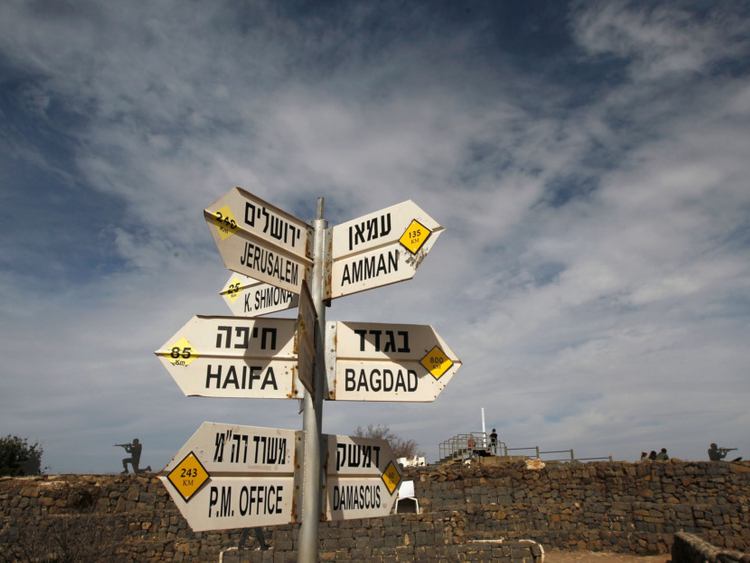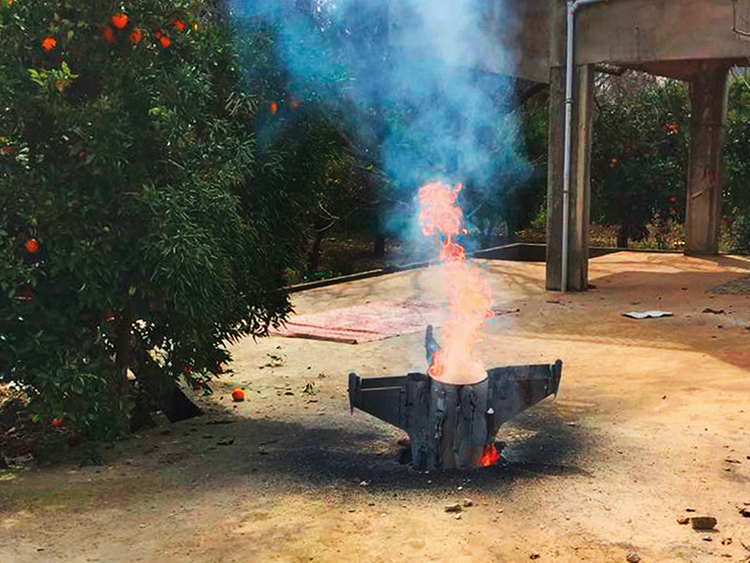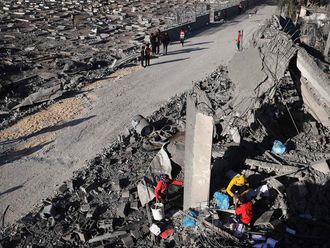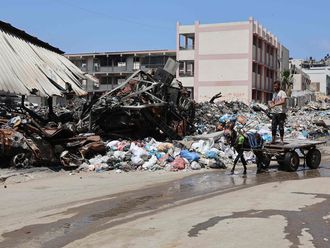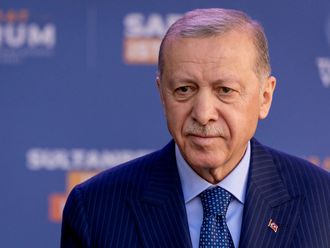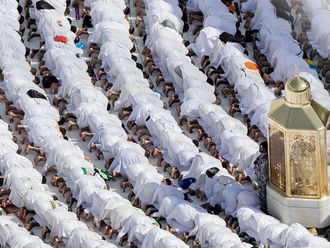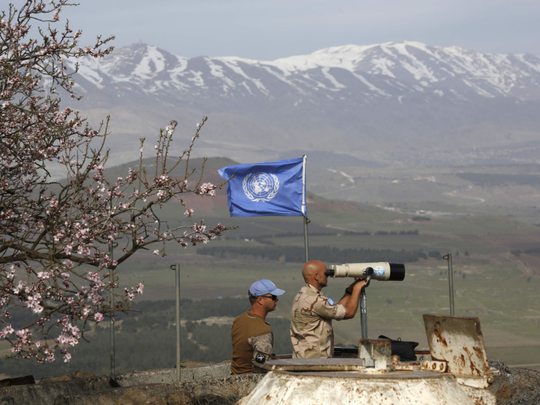
Occupied Jerusalem: A drone incursion into Israel early Saturday spiraled into a major confrontation that included the downing of an Israeli fighter jet and an extensive attack on Iranian military assets in Syria _ the first known time that Israel has used force against Iran.
The attacks and counterattacks also mark the first time since 1982 that Israel and Syria have engaged in direct combat.
The chain of events threatened to escalate into active combat between Syrian government forces and Israel, which has remained an outsider in the 7-year-old Syrian civil war.
Syrian state media reported that the downing of the aircraft was “a strategic decision of Syria and the axis of resistance to Israel.”
In retaliation, Israel carried out what the army called “a large-scale operation” into Syria targeting 12 Syrian and Iranian military sites.
“Syria and Iran are playing with fire,” said Israel Defense Forces spokesman Lt. Jonathan Conricus.
Syrian state television described the attack as a new “Israeli aggression” in the form of explosions close to the Syrian capital of Damascus. A community Facebook page that tracks attacks there reported strikes on military sites near the suburbs of Kiswah and Dimas.
The Iranian foreign ministry said the Israeli claim that it intercepted a drone was “ridiculous.”
A statement issued by the joint Syrian-Iranian operations room said the drones had been “on a routine mission” over eastern Syria for operations against remaining Daesh pockets in the area when the Israeli warplanes struck the control center at the Tiyas airport, a military air base also known as T4, roughly 55 miles southeast of the Syrian city of Homs.
“This action by the Zionist entity is a condemnable terrorist attack ... and any new aggression will face a harsh and serious response,” it said.
Israeli Prime Minister Benjamin Netanyahu has long warned of the danger of Iran’s growing military presence along Israel’s northern border.
In a video released by his office Saturday, he said: “Israel holds Iran and its Syrian hosts responsible for today’s aggression. We will continue to do whatever is necessary to protect our sovereignty and our security.”
Russia, Syrian President Bashar Al Assad’s most stalwart ally, which has established several military bases in Syria during the course of the civil war, said in a statement issued by the foreign ministry that it urged “all sides to exercise restraint and to avoid any actions that could lead to an even greater complication of the situation.”
“It is necessary to unconditionally respect the sovereignty and territorial integrity of Syria and other countries in the region.”
The downing of the Israeli jet by Syria represents a sobering juncture in Netanyahu’s intense efforts to avoid military entanglements with Russia through a so-called “deconfliction mechanism.”
At a Jan. 30 meeting with Russian President Vladimir Putin in Moscow, Netanyahu said, “The most important thing I think is to make sure that we understand each other and that we don’t shoot down each other’s planes. And we decided to do what is called in this awful jargon deconfliction, which means not shooting each other. And we established a mechanism to do that, and that mechanism holds secure.”
In a statement Saturday, the Pentagon said that the US did not participate in the Israeli military operation in Syria and that it fully supports “Israel’s inherent right to defend itself against threats to its territory and its people.”
It called for “greater international resolve in countering Iran’s malign activities.”
In a separate statement, US State Department spokeswoman Heather Nauert said, “Iran’s calculated escalation of threat and its ambition to project its power and dominance, places all the people of the region _ from Yemen to Lebanon _ at risk.”
“The US continues to push back on the totality of Iran’s malign activities in the region and calls for an end to Iranian behavior that threatens peace and stability,” the statement said.
Daniel Shapiro, a former US ambassador to Israel, said in an interview that the US appears to be “ceding all the diplomacy to Russia” and in doing so, was making a mistake.
“Thus far, the US seems absent from the playing field, which does not serve its own interests or that of its closest regional ally, Israel.
“Normally, in a moment of crisis or of potential escalation, American diplomacy coordinates very closely with Israel and is critical for containing these situations and deterring Israeli and US enemies from acting aggressively,” said Shapiro, currently a visiting fellow at the Institute for National Security Studies in Tel Aviv.
In an official statement, Hezbollah, the Lebanese-based militia and a close Iranian ally, announced that the downing of the Israeli jet represents “the start of a new strategic era.”
The last time Israeli and Syrian forces engaged in direct combat was in June 1982, when Israel entered the south of Lebanon to uproot Palestinian guerrillas using the area as a staging ground for attacks into Israel.
Amos Yadlin, a former Israeli air force general who once headed Israel’s military intelligence, said the downing of the plane Saturday in northern Israel raised the possibility that “Syria may have used a long-range missile that Israel has been worried about.”
In an interview, he added, “This means Israeli jets are exposed and vulnerable within Israeli borders.”


